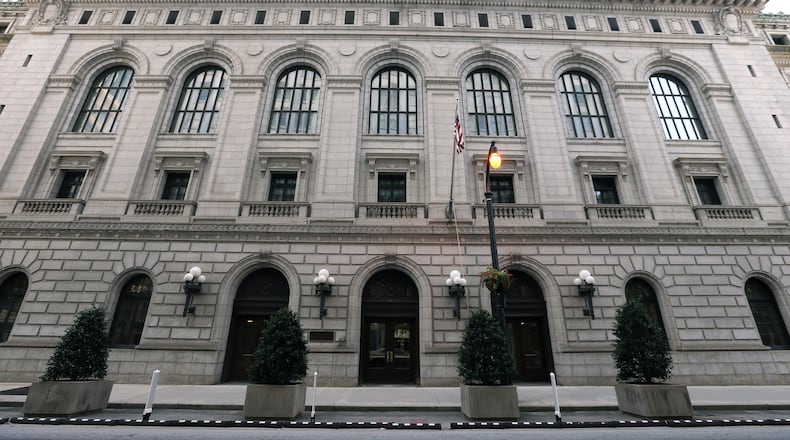The state of Georgia’s annotated version of state law cannot be protected under copyright law and should be made available for free to the public, the federal appeals court in Atlanta has ruled.
The unanimous ruling by a three-judge panel of the 11th U.S. Circuit Court of Appeals is a victory for public records activist Carl Malamud. After he published Georgia's annotated code on his website, public.resource.org, the state and the General Assembly filed suit, seeking a order requiring him to take it down.
The annotated version of the Official Code of Georgia contains the precise wording of the state’s laws. It also includes summaries of state attorney general’s opinions, advisory opinions by the State Bar of Georgia, summaries of important court rulings, excerpts of law review articles, legislative histories and repeals.
In court filings, the state said it has a financial interest in maintaining the status quo. The annotated version of Georgia’s official code is available for $404 from LexisNexis, a data collection company. LexisNexis prepares the actual annotations, following highly specific directions in its contract with the state. The state collects royalties off the sales of CD-ROM and online editions of the code.
In its lawsuit, the state accused Malamud of "systematic, widespread and unauthorized copying and distribution of the copyrighted annotations." It also said if Malamud prevailed, the state would have to stop publishing annotations altogether or use tax dollars to pay for them.
In its ruling, issued Friday, the 11th Circuit said deciding the case meant “confronting profound and difficult issues about the nature of law in our society and the rights of citizens to have unfettered access to the legal edicts that govern their lives.”
In the end, the court found that “the people, as the reservoir of all sovereignty, are the source of our law.” For copyright purposes, this means they are the “constructive authors” of the annotated code. “And because they are the authors, the people are the owners of these works, meaning that the works are intrinsically public domain material and, therefore, uncopyrightable.”
Judge Stanley Marcus, who wrote the opinion, noted there is a substantial public policy interest in the issue — “providing free access to such works promotes an informed citizenry.”
Applauding the ruling in a tweet, Malamud took inspiration from folk singer Woody Guthrie: “This law is your law. This law is my law. From the Blue Ridge Mountains to the Savannah River. From Morehouse College to the Vidalia fields. This law was made for you and me.”
Atlanta lawyer Tony Askew, who represents the state, divulged little when asked for comment.
“This is an interesting case,” he wrote in an email. “At this time we cannot discuss future options.”
About the Author
The Latest
Featured




